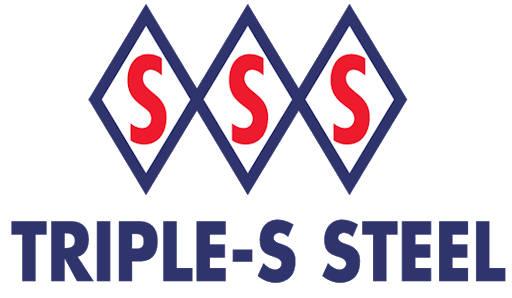



For over 100 years, corrugated steel pipe has been at the center of drain construction. Concrete pipe may be durable, but it’s unwieldy and incredibly heavy. Corrugated steel pipe is strong, and the construction industry uses it in hundreds of applications. Plus, it’s come a long way from the short lifespan it had in its early days. But what exactly do we mean when we talk about corrugated steel pipe? What is it used for, and how long can it last?
Let’s take a closer look at some corrugated steel pipe facts.
Corrugated steel pipes have a distinctive ridged appearance. Ridges and grooves run next to each other along the entire surface, and around the entire circumference of the pipe. The corrugation makes the pipes flexible. This flexibility gives them an edge over rigid materials, making them suitable for use in a variety of applications. The height of the ridges matter. The taller the ridges, the more flexible the pipe is.
There are two main styles of corrugation: annular (ring-shaped) and helical (helix-shaped). They come in a huge range of sizes. There are also variations in shape and gauge.
Standard gauges range from 8 to 18 gauge. It can be produced in diameters from as small as 6 inches to 26 feet. It is usually supplied in lengths between 20 and 40 feet. This allows engineers to choose very specific pipes based on the demands of the project. This keeps waste and costs to a minimum.
Corrugated pipes are available in a range of materials. This includes PVC and high-density polyethylene (HDPE). But steel has properties that set it apart from the crowd. Steel is a sustainable material because it is 100% recyclable. It’s incredibly strong, and it lasts for decades with the right treatment. Additionally, it now uses 50% less energy to produce a ton of steel than it did 40 years ago. It’s also capable of bearing huge loads and soil fill heights of over 100 feet.
A key property of corrugated steel pipe is that it can be buried in soil. Its ability to withstand the loads this exerts on it makes it the perfect choice for a wide range of drainage projects. These include:
Corrugated steel pipe specially constructed on a huge scale can be used to construct foundation caissons. Corrugated steel pipe is ideal for highway construction. It can withstand the stress of both heavy traffic and unstable foundations.
Corrugated steel pipes are joined using pipe joints, also called pipe couplers. There are two main types: soil-tight and watertight, depending on the application. Soil-tight couplers prevent soil and other material from entering the pipe. It needs to provide a tight seal that can prevent even fine materials used for foundations, such as sand, from infiltrating the pipe. Corrugated steel pipes are perfect for systems below the water table. For example, retention and detention chambers must be watertight. Galvanizing the joints protects them from rust.
Types of coupler configurations include:
Additionally, a wide range of pipe fittings is available for angled joints, including elbow, tee, cross, and wye joints.
Corrugated steel pipe is a hugely reliable material. However, in its raw state, it has some vulnerabilities. It needs extra protection against corrosion and abrasion. In the past, without galvanization or coating, it would begin to perforate at some point between 10 and 35 years after installation. Replacing the pipework is incredibly costly. This led to the development of a range of coatings. These advances have given steel corrugated pipe a lifespan of 100 years.
Coating corrugated steel pipe with a layer of zinc provides excellent protection from corrosion. This is the galvanization process. It makes it possible for the pipes to withstand highly acidic and alkaline environments without corroding. The service life of galvanized corrugated steel pipes can be calculated based on the pH and resistivity of the water and soil in which the pipe is laid.
A polymer coating applied to galvanized steel pipes provides an extra layer of protection. The polymer coating protects against both abrasion and corrosion. It is applied as a laminate film and it adheres extremely well to the base steel. This type of coating has only been in use for around 40 years. Based on current observations, industry professionals believe that these pipes will last for 100 years.
An aluminum coating applied to pipework also provides a high level of protection against corrosion. The coating is reactive and forms a layer of aluminum oxide. However, this layer is highly resistant to corrosion. In lower pH and soft water conditions, it can provide more protection than zinc coating. However, it is not suitable for alkaline environments with a pH greater than 9.
Corrugated steel pipe is strong, flexible, and able to stand up to incredible loads. And with a lifespan of 100 years, it’ll be here for generations to come. At Intsel Steel West, we provide a wide range of steel pipe and tubing options.
Our fixed pricing means the price on your purchase order is the price you pay. You can keep costs predictable and projects on budget. We offer next-day delivery from our facilities throughout the country. Request a quote for your upcoming project today.